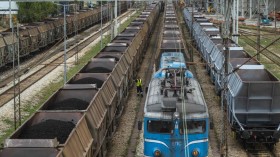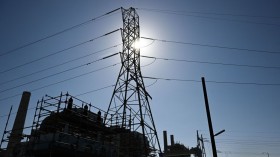A new study reveals that soils could have a limited potential in countering the effects of climate and more likely to become a net source of atmospheric carbon dioxide in the next century.
The study, published in the journal Scientific Reports, showed that the current pace on how people use and change the land will make the soil less able to store carbon. Without its ability to absorb atmospheric carbon dioxide, soils will lose counteracting effects to climate change. Furthermore, these changes could also lead to soil becoming a net source of carbon dioxide to the atmosphere.
"A reduction in anthropogenic CO2 levels is crucial to prevent further loss of carbon from our soils," explained lea author Dr Jeroen Meersmans, from the University of Exeter, in a press release. "However, promotion of land use changes and management that contributes to soil carbon sequestration remains essential in an integrated strategy to protect soil functions and mitigate climate change."
For the study, the researchers analyzed and combined models of soil carbon and land use change with climate change predictions. Using France as a case study, the researchers predicted that a quarter of the carbon found in the soils of France could be lost in the atmosphere in the next century. Furthermore, the researchers also found that lands under almost all uses will experience a dramatic loss of their carbon by 2100.
The researchers noted conversions of lands into grass or forests could mitigate the soil from losing too much carbon and result in additional storage supplies. However, the researchers predict that such land changes are not likely to happen on a large scale due to the pressures of land resources imposed by food production and urban expansion.
Significant reduction in the amount of carbon in the soils could have a negative impact in the soil's ability to produce plants and store water, which in turn will result to increased soil erosions and flood damage.
© 2024 NatureWorldNews.com All rights reserved. Do not reproduce without permission.

![Extreme Heat Wave in Africa’s Sahel Region That Killed 100 People Linked to Climate Change [Study]](https://1471793142.rsc.cdn77.org/data/thumbs/full/70226/280/157/50/40/extreme-heat-wave-in-africa-s-sahel-region-that-killed-100-people-linked-to-climate-change-study.jpg)



